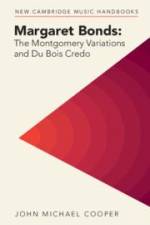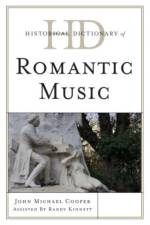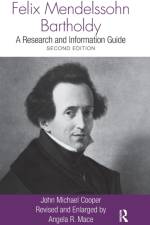av John Michael Cooper
2 607
This Historical Dictionary of Romantic Music provides detailed and authoritative articles for the most important composers, concepts, genres, music educators, performers, theorists, writings, and works of cultivated music in Europe and the Americas during the period 1789-1914. The roster of biographical entries includes not only canonical composers such as Beethoven, Berlioz, Brahms, Chopin, Faure, Grieg, Liszt, Mahler, Mendelssohn, Mussorgsky, Rossini, Schubert, Robert Schumann, Sibelius, Strauss, Tchaikovsky, Verdi, Wagner, and Wolf, but also less-well-known distinguished contemporaries of those composers (among them George Whitefield Chadwick, Cecile Chaminade, Ernesto Elorduy, Chiquinha Gonzaga, Fanny Hensel, C. H. Parry, and Clara Schumann, to name but a few). Significant literary and cultural topics such as Goethe's Faust and Wagner's theoretical writings of the 1850s, as well as entries on other cultural luminaries who significantly influenced music's Romanticisms among them J. S. Bach, Goethe, Haydn, Handel, Heine, Mozart, Schiller, and Shakespeare are also included. Entries on important institutions (conservatory, orpheon, Mnnerchor), concepts (biographical fallacy, copyright, exoticism, feminism, nationalism, performance practice), and political caesurae and movements (First and Second French Empire, First, Second, and Third French Republic, Franco-Prussian War, Revolutions of 1848, Risorgimento) round out the dictionary section.Like other volumes in this series, this books more than 500 entries are preceded by an introductory essay that explains the essential concepts necessary for understanding and exploring further the vast and complex musical landscape of Romanticism, plus a detailed Chronology. Concluding the volume is an extensive bibliography that lists the most important source-critical series of editions of Romantic music, important general writings on the period and its music, and composer-by-composer bibliographies.



